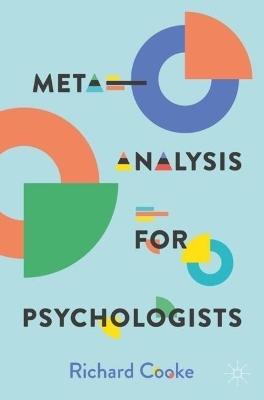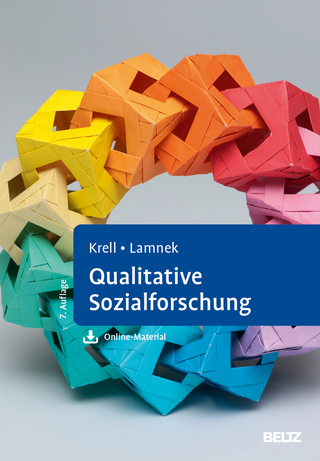
Meta-Analysis for Psychologists
Springer International Publishing (Verlag)
978-3-031-73772-5 (ISBN)
- Noch nicht erschienen - erscheint am 14.01.2025
- Versandkostenfrei innerhalb Deutschlands
- Auch auf Rechnung
- Verfügbarkeit in der Filiale vor Ort prüfen
- Artikel merken
- Covers theory, key issues and step-by-step demonstrations
- Includes examples worked examples familiar to psychologists and datasets
- Companion videos demonstrate the methods outlined
Richard Cooke is a chartered health psychologist and Professor of Health Psychology in the School of Health, Science and Wellbeing at Staffordshire University, UK. Professor Cooke has an international reputation for using meta-analysis to test health psychology theories as predictors of health behaviours. He has authored five meta-analyses that have collectively been cited more than 1300 times and delivered numerous meta-analysis workshops. He has a lifelong love of meta-analysis and wants to encourage others to develop their skills in using this technique.
List of tables.- List of figures.- Preface.- Acknowledgments.- Chapter 1 Introduction to meta-analysis for psychologists.- Section 1 Introduction to meta-analysis.- Chapter 2 What is a meta-analysis and why should I run one?.- Chapter 3 Identifying your effect size.- Section 2 Preparing to conduct a meta-analysis.- Chapter 4 Systematic review essentials.- Chapter 5 Data extraction for meta-analysis.- Chapter 6 Quality appraisal for meta-analysis.- Chapter 7 Data synthesis for meta-analysis.- Section 3 Conducting meta-analysis in jamovi.- Chapter 8 Using jamovi to conduct meta-analyses.- Chapter 9 How to conduct a meta-analysis of correlations.- Chapter 10 How to conduct a meta-analysis of effect size differences.- Section 4 Further issues in meta-analysis.- Chapter 11 Fixed effect vs. Random effects meta-analysis.- Chapter 12 Moderator (sub-group) analyses.-Chapter 13 Publication bias.- Chapter 14 Further methods for meta-analysis.- Chapter 15 Writing up your meta-analysis.
| Erscheint lt. Verlag | 14.1.2025 |
|---|---|
| Zusatzinfo | Approx. 265 p. 30 illus. |
| Verlagsort | Cham |
| Sprache | englisch |
| Maße | 155 x 235 mm |
| Themenwelt | Geisteswissenschaften ► Psychologie ► Sozialpsychologie |
| Medizin / Pharmazie | |
| Sozialwissenschaften ► Soziologie ► Empirische Sozialforschung | |
| Schlagworte | Data Extraction • data synthesis • effect size differences • fixed effect • jamovi • Meta-analysis • meta-analysis of correlational studies • meta-analysis of experimental studies • meta-analytic structural equation modelling (MASEM) • Path Analysis • Publication Bias • Quality appraisal • random effects • sample-weighting • Social science research methods • Statistical Theory • statistics in psychological research • synthesizing results across studies • Systematic Review • using R for meta-analyses |
| ISBN-10 | 3-031-73772-5 / 3031737725 |
| ISBN-13 | 978-3-031-73772-5 / 9783031737725 |
| Zustand | Neuware |
| Haben Sie eine Frage zum Produkt? |
aus dem Bereich


